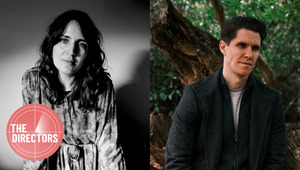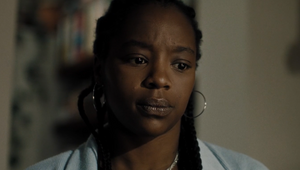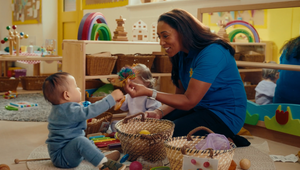
The Directors: Zac Lynch-Woodlock

Zac Lynch-Woodlock is a seasoned film industry professional with over 20 years of experience. He has directed campaigns for a wide range of brands, including KFC, Australian Red Cross, HCF, Aqium, PepsiCo, Austral Bricks, and Mitre 10, to name a few. Zac has also directed music videos for bands such as Birds of Tokyo and The Rions.
Known for his versatile approach as both a director and editor, Zac focuses on creating visually captivating and emotionally impactful work. He enjoys crafting stories that provoke thought and leave a lasting impression.
With a particular passion for comedy, Zac thrives on the process of casting the right talent and bringing out the humour in a script. He constantly seeks those moments that elevate a scene, while encouraging actors to improvise and take creative risks.
Name: Zac Lynch-Woodlock
Location: Sydney Australia, UK & Europe
Repped by/in: Treacle7 (UK & Europe)
Awards:
Museum of Contemporary Art Australia’s #whatsyourMCA campaign.
Bronze Lion in the Cannes Design Lions Awards.
IBM Outthink Melanoma Campaign.
A Bronze Clio Award and a Bronze APAC Effie.
Aqium – Stop The Germ Swap
Gold at PMAA Dragons of Asia for Best Small Budget Campaign and a Nomination for an ADMA.
Huggies DryNites Dream Big Campaign
Finalist at both the ADMA Creative and Effectiveness Awards and the APAC Effie Awards.
Who Gives a Crap (Most Skippable Ad)
Silver at the YouTube Skippies Awards 2016
Movember– (A day in the life of death)
Silver at the YouTube Skippies Awards 2017
LBB> What are some upcoming projects that you're excited about? Tell us a bit about them?
Zac> I’m in post-production on a TVC for a food delivery brand right now, and I’ve got a few personal projects in the works. It’s still early days, but I’m developing a feature script and doing a lot of experimenting with generative AI to create art films whenever an idea hits.
LBB> What excites you in the advertising industry right now, as a director? Any trends or changes that open new opportunities?
Zac> I think the advertising industry worldwide is really pushing the boundaries with visual style and storytelling. At the heart of it, you need a great idea or insight, but bold visuals definitely help grab the audience's attention.
Over the last 10 years, I've noticed more clients being open to bolder visuals, moving away from the traditional looks that can sometimes feel a bit safe or get lost in the noise. That said, I wouldn’t be surprised if, over time, there’s a shift back toward more stripped-back, authentic visuals.
LBB> What elements of a script sets one apart from the other and what sort of scripts get you excited to shoot them?
Zac> As a director, it’s important to have the space to expand on an idea and shape its aesthetic and tone. When a script is well-developed but still leaves room for creative exploration, it’s a great starting point. It’s always helpful when the creative team is open to experimenting with different approaches.
Of course, you want a script that’s solid, but when there’s a gap or a flaw in the creative, it’s an opportunity to collaborate and work through those challenges to make the idea stronger.
LBB> How do you approach creating a treatment for a spot?
Zac> I have a bit of a love-hate relationship with treatments. They’re such a crucial part of pre-production, where you as a director put your vision out there for others to judge — but it’s a bit like an actor’s audition, so it can definitely feel daunting.
But at the same time, I really enjoy the possibilities that a new brief and creating a treatment bring. I usually start by reading through the script multiple times, then rewrite it to clarify my thoughts and add any story builds that might work. After that, I spend a fair amount of time sourcing references.
If I’m working with a DA, I’ll brief them on the visuals or specific images I’m looking for. I’ll typically use an older template for the layout, then begin populating it with the new copy and visuals. Once the structure’s in place, I’ll shift focus to the design of the treatment itself, tailoring it to reflect the brand we’re working on. With GIFs and animations so accessible now, I also spend a lot of time crafting the visuals to really capture and convey the energy and tone of the project.
LBB> If the script is for a brand that you're not familiar with/ don’t have a big affinity with or a market you're new to, how important is it for you to do research and understand that strategic and contextual side of the ad? If it’s important to you, how do you do it?
Zac> I think it’s definitely helpful to have some context about the brand and its previous work if you're involved in developing the creative for a project.
That said, by the time a director is brought on, this is usually something that’s already been covered. Clients typically reach out to directors whose style aligns with the tone they’re going for in the campaign, so as long as you’re not straying too far from that, you don’t need to worry too much.
This is where the director’s treatment really comes into play — it’s the moment you check if your vision is in sync with what they want to achieve. That’s also why clients and creatives like to see a director’s previous work with a similar tone to their campaign, so there are no major surprises when the treatment comes back.
LBB> For you, what is the most important working relationship for a director to have with another person in making an ad? And why?
Zac> I believe building a strong relationship with your producer is essential, as they often handle communication with the agency and client. They need to fully understand your vision in order to communicate your ideas effectively.
As a director, it’s just as important to connect with heads of departments, the creative team, and the actors. These relationships are key to bringing your vision to life.
In pre-production, a good rapport with your producer ensures clear and consistent communication with all stakeholders. Regular check-ins with the creatives and client help keep everyone aligned and on the same page.
During the shoot, while the producer handles logistics, your direct communication with the crew and performers is crucial to ensure the vision is captured as planned.
In post-production, the producer advocates for your creative choices while balancing the client’s needs. Nurturing these relationships throughout the process is vital for a smooth project and ensures that everyone is satisfied with the final outcome.
LBB> What type of work are you most passionate about - is there a particular genre or subject matter or style you are most drawn to?
Zac> A lot of my commercial work has naturally gravitated toward the comedy space. I believe comedy is one of the best ways to connect with an audience—if you can make people laugh, you’re creating a positive association with the brand. I also think the commercial format works really well for comedy, as it’s the perfect length to deliver a punchy, memorable joke. When I look back at the campaigns that have really stood out to me over the years, the majority of them have been comedy-driven.
But that being said I would love to create something that draws and emotional response and sticks with an audience, I also would love to explore various genres more such as horror and action.
LBB> What misconception about you or your work do you most often encounter and why is it wrong?
Zac> I feel that all directors, and even DPs for that matter, particularly in the commercial world will end up being pigeon-holed as working a certain style. For example, one director might do lots of interesting transitions and another might do a lot of food or car stuff.
Granted it’s important to be able to show a client or creative team that you have the experience to bring their project to life, but I do find that most directors are interested in exploring a variety of styles and genres, so I’m certainly not alone in feeling that I would also like to explore various genres,.
LBB> Have you ever worked with a cost consultant and if so how have your experiences been?
Zac> No, I’ve been lucky enough not to have to work with a cost consultant so far, but in general, I find that most budgets are pretty tight. It just means we have to get more creative with our approach to deliver the desired result while staying within budget.
LBB> What’s the craziest problem you’ve come across in the course of a production – and how did you solve it?
Zac> I've definitely encountered my fair share of wild production challenges over the years — everything from the set not showing up on time and having to improvise with whatever we could scrounge up in the studio, to last-minute actor availability changes. With all the curveballs thrown your way, you learn to adapt and keep the ball rolling as the production unfolds.
But hands down, the craziest thing I've dealt with is shooting an entire campaign, only for the client to pull the plug at the last minute, usually due to legal or focus testing issues. That’s always the toughest pill to swallow, especially after all the hard work that goes into taking the campaign from concept to execution, only for it to fall apart right at the finish line.
LBB> How do you strike the balance between being open/collaborative with the agency and brand client while also protecting the idea?
Zac> I think it’s important to establish a strong rapport with the creative team from the outset, and build their confidence that you’re going to bring their idea to life in the best possible way. I can imagine it’s a nerve-wracking process for creatives to hand over their concept to a director and trust them to do it justice.
The more experienced creatives are really good at this — they can give you valuable insights into their vision, which allows for a true collaboration where you can all craft something you’re proud of.
Of course, there will be times when an idea you’re passionate about isn’t shared by the creatives or the client. In those situations, you need to present multiple options, maybe even different versions of an edit, and advocate for the one you believe in. And if that doesn’t work, there’s always the director’s cut!
LBB> What are your thoughts on opening up the production world to a more diverse pool of talent? Are you open to mentoring and apprenticeships on set?
Zac> I believe we need to do more to encourage diversity in the film industry, especially in Australia. The industry here is relatively small, and many people get their start through connections, whether it’s family or other networks. In that sense, a big part of the solution might be creating more accessible networks where people can meet industry professionals who can help them get work.
One approach I think could be interesting is introducing an apprenticeship program, similar to those in trade industries.
However, I feel this would need to be aligned with a film course or some kind of formal training. That said, this kind of structure already exists to some extent in the industry — there are attachment roles that allow people to gain experience in different departments, and mentorships where department heads take younger crew members under their wing and train them up as assistants.
If department heads can actively consider diversity when mentoring younger talent, we could start to build a more diverse pool of professionals in the industry. However, it often comes down to the organic nature of mentorship, where people tend to mentor those they connect with personally. The key is finding ways to ensure that diversity is considered as part of that process.
LBB> Your work is now presented in so many different formats - to what extent do you keep each in mind while you're working (and, equally, to what degree is it possible to do so)?
Zac> I usually shoot all content in 16:9 and then adjust it for other aspect ratios as needed, finding creative ways to scale and track the frame—especially when we need to fit multiple characters in a shot.
However, if the campaign is focused solely on a 9:16 social format, it's great to lean into that aesthetic from the outset and design your shots and compositions specifically for that style. There are also some excellent AI tools, like Photoshop’s generative fill, which can extend the top and bottom of your frame. This is especially helpful for locked-off shots where you might not have the space for a 9:16 setup. Instead of doing a full redress or relight, you can easily fill in the extra space at the top and bottom.
LBB> What’s your relationship with new technology and, if at all, how do you incorporate future-facing tech into your work?
Zac> I’ve always focused on honing the skills I use today, and over time, I’ve built a strong foundation in filmmaking. When I started, commercials were shot on film, and the standards were high, with much greater challenges and risks involved in the process.
New technology has significantly lowered the barrier to entry, making it easier for more people to create content. With the advent of user-friendly, accessible tech and reduced production costs, there’s now more room for emerging filmmakers to take risks. We're also entering an exciting new phase in filmmaking with AI, and it’s fascinating to see how we’ll integrate it more deeply into our workflows.
I embrace AI and use it regularly in my work, whether for writing with ChatGPT or visualising concepts with generative AI. That said, I see AI as a tool to enhance traditional filmmaking—working alongside real actors and crews—to help us achieve shots or effects that were previously out of reach.
LBB> Which pieces of your work do you feel show what you do best – and why?
Zac> Birds of Tokyo 'Two Of US'
We shot this video during the early days of Covid, and the band wanted to capture the raw energy and spontaneity of U2's "The Sweetest Thing." We really focused on the hero
character moving through the space, creating a sense of fluidity as bizarre scenes evolve and play out in the background. It was my first time directing a one-shot music video, and I was really excited to take on the challenge of nailing the shot. From the staging to the timing, every movement had to be precise, and it all came together seamlessly.
It was a challenging but rewarding experience, and just recently, the video hit one million views. It’s been incredible to see how it’s resonated with so many people.
Australian Red Cross 'Life Blood'
In this campaign, my goal was to foster a sense of connection between the characters through the transitions. I believe this approach effectively emphasises the idea that they are all part of a larger community, facing a deeply human challenge. It also marked a departure for me from my usual comedy work, which was an exciting opportunity to explore and create bold, impactful visuals.
Brickworks 'Special Agent Brick'
This project was a really fun one where I took on the role of writer/director and worked closely with the client to bring this action-packed, character-driven campaign to life. It was a great opportunity to get hands-on with both the creative and the direction, collaborating every step of the way. The process was all about crafting a bold and exciting story while staying true to the clients brief.
TAC – 'Auto Emergency Braking'
This was another exciting project to put together. We teamed up with stand-up comedians Greg Larson and Emma Holland, and I really enjoy working with comedians. They have an amazing ability to improvise and bring fresh, unexpected ideas to the table, which always adds a great energy to the process.















